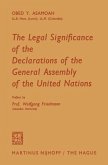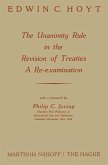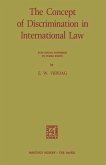Doctor Hyder's meticulous and comprehensive study throws much needed light on the often invoked but little understood concept of "discrimination" in international law. It is also of great practical value to those who are concerned with the law of international trade. "Discrimination" is a word with bad connotations. It suggests un fairness, prejudice and favouritism. It seems to point to adeparture from the ideal of equal opportunities, equal rewards and even-handed legal protection of all human beings without regard to differences of race, religion, ethnic origin or sex. Similarly, in public international law "discrimination" suggests violation of the principle of equality of states. Yet there are vast areas of international relations in whieh states are regarded as being legally free, except as specially provided in treaties, to make distinctions between other states or their nationals. The principle of equality of states merely means that the many rules constituting what is often called "general (or universal) international law" apply equally to all independent states. Hence, by definition, such states have equal rights and duties under general international law. But the latter leaves vast areas of transnational activity to be regulated by states at their discretion either unilaterally or by special agreement with other states. No state has, in fact, exactly the same totality of rights and duties as other states, since no two states are parties to exactly the same treaties. By treaty, astate often grants to another state a right which it may withhold from third states.
Dieser Download kann aus rechtlichen Gründen nur mit Rechnungsadresse in A, B, BG, CY, CZ, D, DK, EW, E, FIN, F, GR, HR, H, IRL, I, LT, L, LR, M, NL, PL, P, R, S, SLO, SK ausgeliefert werden.









